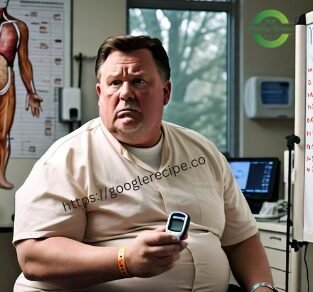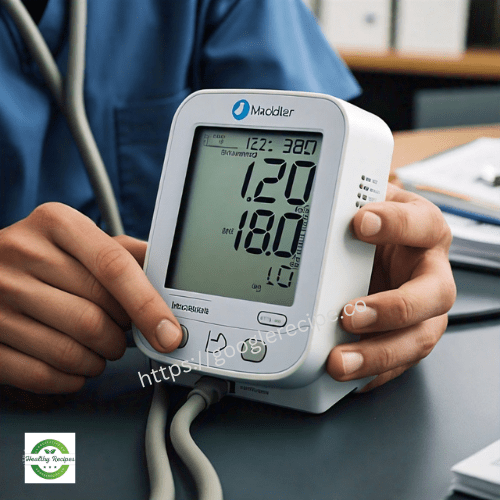High Blood Pressure Symptoms
High Blood Pressure Symptoms: Know the Warning Signs
Keeping your heart healthy is key. Knowing the early signs of high blood pressure is crucial. This article will cover the symptoms of high blood pressure and when to get help.
High blood pressure is a common issue that can lead to serious health problems if ignored. By spotting the signs of hypertension early, you can take steps to keep your heart healthy. This might help prevent worse health issues later.
Key Takeaways
- High blood pressure can have various symptoms, including headaches, dizziness, and chest pain.
- Recognizing the warning signs of hypertension is crucial for maintaining good cardiovascular health.
- Seeking medical attention promptly if you experience any concerning symptoms is recommended.
- Monitoring your blood pressure regularly and tracking any changes can help identify potential issues early on.
- Making lifestyle modifications, such as maintaining a healthy diet and engaging in regular exercise, can help manage high blood pressure.
What is High Blood Pressure?
High blood pressure, also known as hypertension, is a serious condition that affects many people around the world. It happens when the blood pressure against your blood vessel walls is too high. This can damage your blood vessels and lead to health problems if not treated.
Understanding Hypertension
Hypertension means your blood pressure is too high. This is when the top number (systolic) is 130 mmHg or higher, or the bottom number (diastolic) is 80 mmHg or higher. High pressure can strain your heart, arteries, and other organs. It raises the risk of serious health issues like heart disease, stroke, and kidney disease.
Risk Factors for High Blood Pressure
Many things can make you more likely to have high blood pressure. These include:
- Family history: Your genes can affect your risk.
- Age: Getting older increases your risk.
- Obesity: Being overweight strains your heart.
- Poor diet: Eating too much sodium, saturated fats, and processed foods can raise your blood pressure.
- Lack of physical activity: Not exercising enough is bad for your blood pressure.
- Stress: Long-term stress can hurt your blood pressure.
Knowing these risk factors can help you take steps to keep your heart healthy and lower your chance of high blood pressure.
| Risk Factor | Impact on Blood Pressure |
|---|---|
| Family History | Increased risk due to genetic predisposition |
| Age | Risk increases with advancing age |
| Obesity | Excess weight places additional strain on the cardiovascular system |
| Poor Diet | High sodium, saturated fat, and processed foods can contribute to hypertension |
| Lack of Physical Activity | Regular exercise is essential for maintaining healthy blood pressure levels |
| Chronic Stress | Blood pressure can be negatively impacted by prolonged stress. |
High blood pressure, or hypertension, often brings on headaches. These headaches feel like a throbbing or pulsing sensation. They might also make you feel dizzy or nauseous. If you’re getting more headaches, it’s key to check your blood pressure with a doctor.
Headaches can warn you of high blood pressure early. The extra pressure in your blood vessels can make nerves and tissues around them get irritated and inflamed. This can cause a headache that doesn’t stop.
- Headaches from high blood pressure are often:
- Throbbing or pulsing
- Accompanied by dizziness or nausea
- Persistent or getting worse over time
- High blood pressure can cause headaches by making blood vessels put more pressure on nerves and tissues.
- If you have a lot of or really bad headaches, you should get your high blood pressure checked by a doctor.
| Symptom | Description |
|---|---|
| Headaches | Persistent, throbbing, or pulsing headaches, often accompanied by dizziness or nausea |
| High Blood Pressure | Increased pressure in the blood vessels, which can lead to nerve and tissue irritation and headaches |
“Headaches are one of the most common signs of high blood pressure and should not be ignored. If you experience persistent or severe headaches, it’s important to have your blood pressure checked by a healthcare provider.”
Dizziness and Lightheadedness
High blood pressure, or hypertension, often shows no signs until it does through symptoms. Dizziness and lightheadedness are signs you shouldn’t ignore. They happen when your heart and blood vessels work hard to keep blood flowing.
If you feel dizzy suddenly or often, check your blood pressure right away. These feelings could mean a serious heart or brain issue. Fixing the cause can help manage your high blood pressure and lower serious health risks.
- Dizziness and lightheadedness are common symptoms of high blood pressure.
- These sensations can occur due to the strain on your cardiovascular system.
- Sudden or persistent dizziness should prompt a blood pressure check.
- Dizziness and lightheadedness can be a sign of a more serious underlying condition.
Listen to your body and notice any changes. If you feel high blood pressure dizziness or hypertension lightheadedness, see your doctor. They can find out why and help you manage it to avoid complications.
Chest Pain: A Concerning Symptom
Chest pain is a symptom that worries many, often linked to high blood pressure or hypertension. This pain can feel like a dull ache or a sharp pain. It might extend to the jaw, neck, or arms. If you have chest pain, get medical help fast. It could mean a heart attack or another emergency.
Types of Chest Pain
Not all chest pain is the same. High blood pressure or hypertension can cause different types of pain:
- Angina, A dull, heavy, or burning sensation in the chest, often triggered by physical activity or stress.
- Acute Chest Pain, A sudden, sharp, or stabbing pain in the chest, which may indicate a heart attack or other serious condition.
- Atypical Chest Pain, Chest pain that does not fit the classic descriptions of angina or acute chest pain, making it more difficult to diagnose.
The type and severity of chest pain can differ from one person to another. It’s not always easy to figure out the cause. That’s why seeing a doctor is key if you have chest pain, especially with other symptoms like shortness of breath, dizziness, or nausea.
| Type of Chest Pain | Description | Potential Causes |
|---|---|---|
| Angina | Dull, heavy, or burning sensation in the chest | Reduced blood flow to the heart, often triggered by physical activity or stress |
| Acute Chest Pain | Sudden, sharp, or stabbing pain in the chest | Heart attack, aortic dissection, or other serious cardiovascular condition |
| Atypical Chest Pain | Chest pain that does not fit the classic descriptions | Difficult to diagnose, may be related to high blood pressure or other underlying conditions |
“Chest pain is a serious symptom that should never be ignored, especially if it is accompanied by other concerning signs like shortness of breath or dizziness. Seeking immediate medical attention is crucial in these situations.”
Fatigue and Weakness
If you’re always tired and weak without a clear reason, it might be high blood pressure. Your heart works too hard when your blood pressure is high. This may leave you feeling worn out and exhausted.
High blood pressure fatigue and hypertension weakness happen because your heart and blood vessels are under too much pressure. This strain can make your muscles feel tired. Even simple tasks can become exhausting.
Don’t ignore these symptoms. If left untreated, high blood pressure can cause major health issues. It’s important to have your blood pressure tested frequently. By treating high blood pressure, you can feel more energetic and healthy.
To fight high blood pressure fatigue and hypertension weakness, try these changes:
- Exercise regularly to boost your heart health
- Eat a balanced diet low in sodium
- Use stress-reducing methods like meditation
- Ensure you get enough sleep each night
If these steps don’t help, your doctor might suggest medication or other treatments. By tackling the root cause, you can improve your energy levels and feel great.
| Symptom | Potential Cause | Recommended Action |
|---|---|---|
| Persistent Fatigue | High Blood Pressure | Have your blood pressure checked and make lifestyle changes to manage hypertension |
| Unexplained Weakness | Hypertension | Consult your healthcare provider and consider medications or other treatments if lifestyle changes aren’t enough |
“Addressing the underlying issue of high blood pressure is crucial for regaining your energy and vitality.”
Shortness of Breath: A Potential Warning Sign
If you have high blood pressure or hypertension, you might notice shortness of breath. This symptom means your heart and lungs are working harder. It can lead to fluid in the lungs and make breathing tough.
Causes of Shortness of Breath
Shortness of breath can happen for a few reasons if you have high blood pressure:
- Heart failure: An excessive amount of blood pressure strains the heart. This can weaken the heart and cause fluid to build up in the lungs.
- Lung disease: Conditions like COPD or pulmonary hypertension can make breathing hard for people with hypertension.
- Anemia: Having fewer red blood cells, which can happen with high blood pressure, means less oxygen in the blood. This can make breathing harder.
If you keep feeling short of breath or it gets worse, you should see a doctor. They can find out why and help you manage your high blood pressure and breathing problems.
| Condition | Impact on Breathing |
|---|---|
| Heart Failure | Fluid buildup in the lungs, making it harder to breathe |
| Lung Disease | Decreased lung function, leading to shortness of breath |
| Anemia | Reduced oxygen-carrying capacity of the blood, causing breathing difficulties |
Knowing why shortness of breath happens and getting medical help quickly can help you manage your high blood pressure. This can improve your breathing and overall health.
Vision Problems and Nosebleeds
High blood pressure, also known as hypertension, can affect your vision and cause nosebleeds. This happens when your blood pressure is too high. It damages the blood vessels in your eyes and nose, leading to health issues.
Vision Problems Linked to High Blood Pressure
One issue with high blood pressure vision problems is blurred or double vision. The high pressure can make your eye’s blood vessels leak or rupture. This affects your eyesight. In bad cases, it can cause total vision loss if not treated.
- Blurred vision
- Double vision
- Sudden vision loss
Nosebleeds and Hypertension
Hypertension nosebleeds are another symptom. High blood pressure can make the blood vessels in your nose rupture. This leads to frequent and sometimes severe, nosebleeds.
| Symptom | Explanation |
|---|---|
| Blurred vision | High blood pressure can damage the blood vessels in the eyes, leading to blurred vision. |
| Double vision | The high pressure can cause the blood vessels to leak or rupture, affecting the coordination of the eyes. |
| Nosebleeds | The increased pressure in the blood vessels can cause the delicate vessels in the nose to rupture, leading to frequent nosebleeds. |
If you notice changes in your vision or keep getting nosebleeds, see a healthcare professional. They can check your blood pressure. Fixing high blood pressure can prevent these and other serious health problems.
Monitoring and Tracking Symptoms
It’s important to watch your blood pressure closely for your heart’s health. Keep an eye on any changes in your blood pressure and symptoms like headaches, dizziness, or chest pain. This info helps your doctor a lot.
To track high blood pressure symptoms and hypertension signs, try these tips:
- Get a good home blood pressure monitor for regular checks.
- Keep a log of your blood pressure, including the date, time, and symptoms.
- Notice how you feel physically and write down any changes, like more fatigue or shortness of breath.
- Talk to your doctor about your concerns or any patterns you notice. They can help decide on treatment.
By keeping an eye on your monitoring high blood pressure symptoms and tracking hypertension signs, you help your healthcare team give you the best care. This supports your heart health too.
| Symptom | Description | Potential Cause |
|---|---|---|
| Headache | Persistent or severe headaches | High blood pressure can cause pressure and pain in the head |
| Dizziness | Feeling lightheaded or unsteady | Reduced blood flow to the brain due to high blood pressure |
| Chest Pain | Discomfort or tightness in the chest | High blood pressure can strain the heart and lead to chest pain |
Conclusion
Knowing the early signs of high blood pressure is key to keeping you healthy. Signs like headaches, dizziness, chest pain, fatigue, and shortness of breath may mean you have hypertension. Being alert to these high blood pressure warning signs helps you manage your heart health better.
Listen to your body and get medical help when needed to handle hypertension symptoms to watch for. Your health is important, so focus on keeping your heart healthy. Don’t wait to address any symptoms that worry you.
By knowing the signs of high blood pressure, you can make smart health choices. Keep an eye on your blood pressure, and talk to your doctor to keep your heart in good shape.
FAQ about high blood pressure symptoms
What is high blood pressure?
High blood pressure, also known as hypertension, is when your blood pushes too hard against your blood vessel walls. It’s when your systolic blood pressure is 130 mmHg or higher, or your diastolic is 80 mmHg or higher.
Which factors put one at risk for high blood pressure?
High blood pressure risks include family history, age, being overweight, eating poorly, not exercising, and having conditions like diabetes or kidney disease.
Can high blood pressure cause headaches?
Yes, high blood pressure often leads to headaches. These headaches feel like they’re throbbing or pulsing. They might also make you feel dizzy or nauseous.
Can high blood pressure cause dizziness and lightheadedness?
Yes, dizziness and lightheadedness are signs of high blood pressure. They happen because your heart is working hard to keep blood flowing.
Can high blood pressure cause chest pain?
Yes, chest pain can be a sign of high blood pressure. This pain can feel like a dull ache or a sharp pain.
Can high blood pressure cause fatigue and weakness?
Yes, feeling tired and weak can mean your blood pressure is high. Your heart has to work harder to pump blood, making you feel drained.
Can high blood pressure cause shortness of breath?
Yes, high blood pressure can make breathing hard. This happens when your heart and blood vessels get strained, causing fluid buildup in your lungs.
Can high blood pressure cause vision problems and nosebleeds?
Yes, high blood pressure can hurt your vision and cause nosebleeds. It can damage your eye blood vessels, leading to blurry vision or loss of sight. High pressure can also make your nose bleed by rupturing blood vessels there.
Why is it important to monitor and track high blood pressure symptoms?
It’s key to watch and record your blood pressure and symptoms for your heart health. Keeping track helps your doctor diagnose and treat you right.


